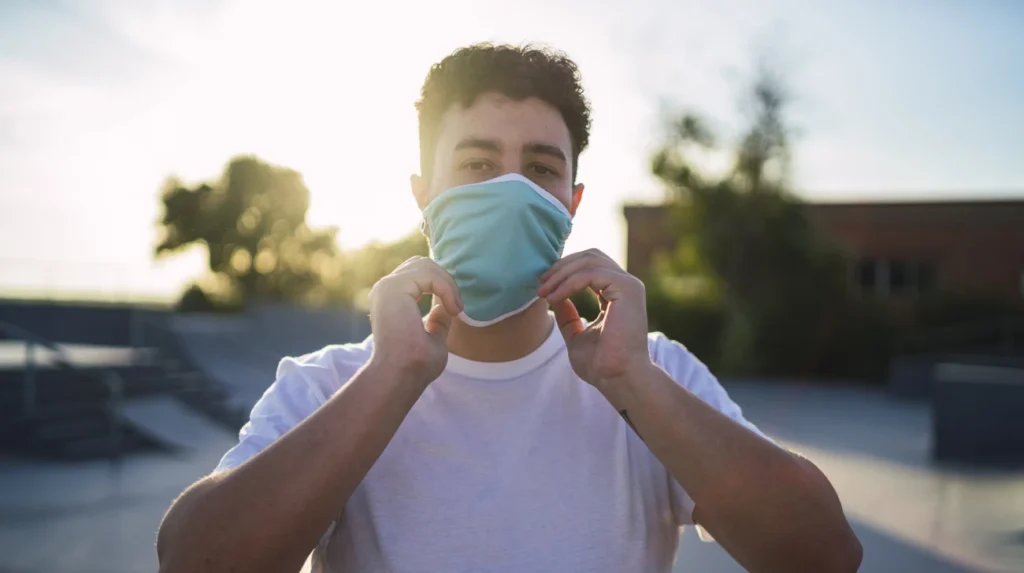India’s May 2025 Covid-19 Situation: Wake-Up Call All Over Again
India recorded a minor upsurge in Covid-19 cases in mid-May 2025, with active cases at 257 across the country. Although the counts remain low compared to the peak of the pandemic, the rise has released a new round of surveillance and response from health officials.
The majority of these Covid-19 cases in India 2025 are said to be mild and do not require hospitalization, according to official data released by the Ministry of Health.
State-wise Distribution of New Cases
Kerala leads the current surge with 69 new infections reported since May 12.Maharashtra comes next with 44 cases, and Tamil Nadu has reported 34 new cases. Other states which reported infections are:
- Karnataka – 8 cases
- Gujarat – 6 cases
- Delhi – 3 cases
- Haryana, Rajasthan, and Sikkim – 1 case each
These cases are under close observation to determine trends and possible clustering.

Two Covid-related Deaths Reported in Mumbai
Two deaths attributed to Covid-19 were recently reported in the King Edward Memorial (KEM) Hospital. Those who died are:
- A 14-year-old boy with kidney failure caused by nephrotic syndrome
- A 54-year-old cancer patient who was being treated
Physicians explained that although Covid-19 was the case, both patients had extreme underlying conditions, which were major contributing factors to their deaths.
Such unfortunate events remind us that even though the Covid-19 cases in India 2025 may be less severe in nature, vulnerable groups remain at risk.
BMC: Moderate Rise, No Panic Reason
The Brihanmumbai Municipal Corporation (BMC) admitted to a marginal increase in Covid-19 cases but declined to allow it to become a reason for panic in the short run. Health authorities have confirmed that the majority of cases are treated at home with supportive therapy, and hospitalization is still low.
People are cautioned to practice hygiene, minimize unnecessary exposure, and mask up in medical or high-risk environments.
Global Surge: Southeast Asia Under Pressure
Globally, alarm is growing due to a surge in Covid-19 infections across some parts of Southeast Asia:
- In Singapore, infections rose from 11,100 during late April to 14,200 early in May, a 28% rise.
- Hong Kong saw its most recent weekly death toll due to Covid in a year with 31 fatalities, and cases rose to 1,042 from 972.
These waves are dominated by Omicron subvariants such as JN.1 and associated lineages, triggering health alerts in the region.

India’s Readiness: A Preemptive Action
Learning from previous waves, Indian health officials have moved towards a proactive approach. On Monday, the Health Ministry organized a top-level meeting led by the Director General of Health Services (DGHS). The participants included representatives from:
- National Centre for Disease Control (NCDC)
- Indian Council of Medical Research (ICMR)
- Emergency Medical Relief (EMR) Division
- Disaster Management Cell
- Key Central Government Hospitals
The meeting aimed at evaluating India’s preparedness to deal with any rise in Covid-19 cases in India 2025, particularly in the backdrop of regional patterns.
Advisory to the Public
Health experts and government bodies are advising citizens to:
- Continue basic hygiene practices
- Get tested if symptomatic
- Avoid large gatherings if unwell
- Stay up to date with Covid-19 vaccinations and booster shots
Even with low numbers, the importance of public cooperation remains high. Covid-19 cases in India 2025 may look sustainable at present, but the virus keeps modifying.
Conclusion
India’s Covid-19 scenario in 2025 remains in hand but with precautions. With 257 active cases and new infections observed in states such as Kerala, Maharashtra, and Tamil Nadu, the message of health authorities is loud and clear — stay alert but do not get alarmed.
While most Covid-19 cases in India 2025 are mild and easily manageable, lessons from Mumbai’s two fatalities show how important it is to protect high-risk individuals.
Globally, the rise in infections across Southeast Asia is a warning signal. India’s swift government action and public awareness efforts are crucial to keeping the situation stable.
The next few weeks will be crucial in keeping an eye out for any change in trends. With vigilant observation, public discipline, and a coordinated effort, India can still effectively manage Covid-19 — just as it has earlier.
read more







